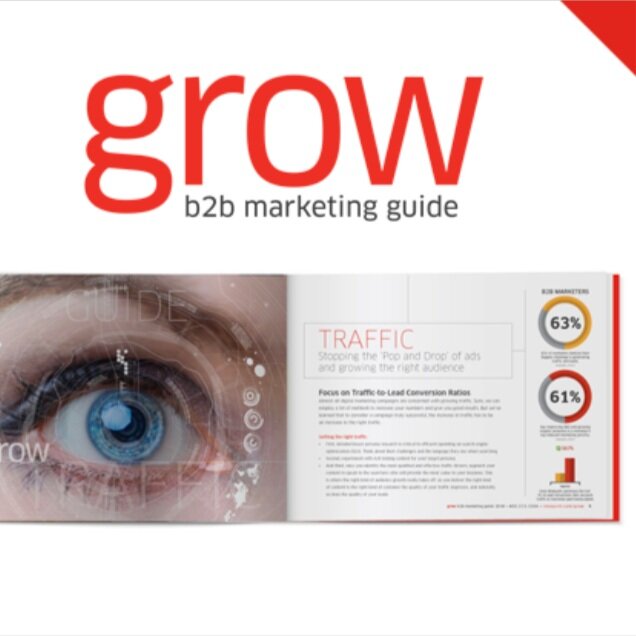Today, data is everything for a B2B company. Data drives lead generation, demand generation, strategy, and execution. Data is the foundation of the house, and it’s tough to build anything lasting or stable without it. This is where a B2B marketing maturity model comes in handy.
Despite the importance of data in marketing, however, many B2B companies just aren’t using it effectively. In a recent survey conducted by McKinsey, only 25% of B2B companies reported using data weekly to understand customer needs, and 9% admitted they never use data at all.
Those are stunning numbers, and B2B companies could do better regarding data. In this blog, we’ll discuss how to identify whether data is driving your B2B marketing maturity model correctly and how to achieve a mature strategy if not.
5 Signs Your B2B Marketing is Truly Data-Driven
Companies that are using data the right way exhibit the following in their B2B marketing:
1. You feel like you have visibility into your total addressable market.
A good B2B database allows maximum visibility into your entire market in just a few clicks. In an ideal B2B marketing maturity model, market segmentation should be a snap, and you should know exactly how big your market is and whom you have yet to reach.
2. Your targeting is on point.
Data-driven B2B marketing takes targeting seriously. If you’re one of these companies, you likely have extensive customer profiles drawn up, you’ve fleshed out your B2B buyer personas, and you have a deep understanding of the buyers (and decision-makers) in the companies you’re working with.
3. Your content is unbeatable.
Speaking of buyer personas, data-driven B2B companies know how to use them to develop content that resonates with their target audiences.
These companies know exactly what motivates people to make purchases and how to create content that moves them through the funnel.
What’s more, these companies are also using their website analytics to verify what’s hitting the target and what’s not, as far as content is concerned.
4. Your marketing is highly personalized.
Data-driven B2B companies flex personalization in all sorts of ways.
Their email campaigns are segmented, their landing pages use personalized UTM parameters, and their PPC and social media contribute to a more extensive, multi-touchpoint campaign.
5. You know where the sticking points are (and how to fix them).
Data-driven teams don’t waste time on sticking points.
Instead, they find it easy to use data in marketing to identify pipeline blockages, address them quickly, and boost conversion rates while decreasing time-to-close.
Steps to Improve Your B2B Marketing Maturity Model
If you’ve realized that your company doesn’t exactly fit the data-enlightened B2B team profile, you’re not alone.
You’re also not destined to live in a data desert forever.
Today, it’s easy to pivot and reprioritize data for a better B2B marketing maturity model.
Here are a few quick tips:
- Make sure all of your marketing data comes from reliable sources and that your company is obsessive about data hygiene. There should be a single designated touchpoint responsible for data quality assurance on your team. That person should work closely with other teams in your company, including IT and data analysts.
- Prioritize credible, relevant data that you can utilize in persona-based and personalized marketing efforts. The most credible data drives the best results.
- Invest in the information that helps you target and personalize your communication and speak directly to your defined personas at every stage of the buyer’s journey.
- Once you start gathering data, focus on using it to eliminate communication gaps with would-be buyers and communicate more effectively with the decision-makers in the organizations you work with.
- Audit your data collection, analysis, and inventory processes to develop a culture that focuses intently on data and understands the importance of the data you bring in.
- Make your sales and marketing processes as streamlined as possible, and start looking for data patterns that allow you to identify and categorize data quickly.
Data: The Baseline of any Good B2B Marketing Strategy
For B2B companies, data is imperative to a good marketing strategy. With the help of accurate, relevant data, your team can overhaul marketing efforts and implement innovative, intelligent approaches that make marketing more effective while also making data collection and utilization more streamlined.
Ready to leverage data in marketing to ensure a spot-on B2B marketing maturity model? We’re here for you. Schedule your 30-minute consultation call now.







 By
By 
